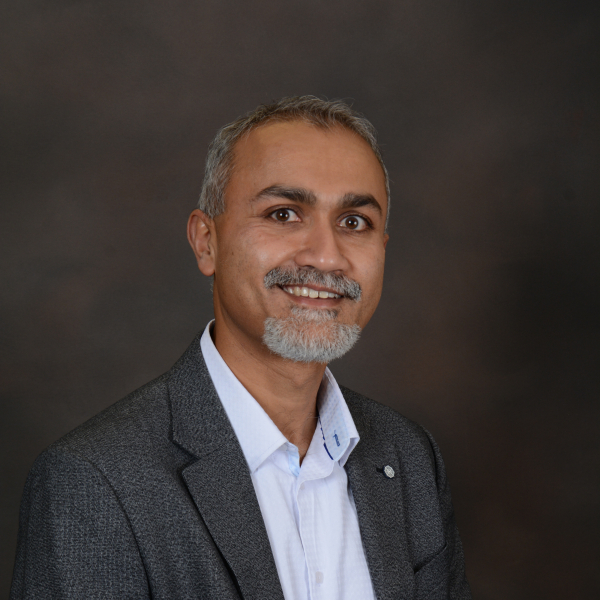Manjunath “Amit” Pai Named Clinical Pharmacy Department Chair

Manjunath “Amit” Pai, PharmD, has been named chair of the University of Michigan College of Pharmacy Department of Clinical Pharmacy. Prof. Pai joined the University of Michigan in 2016, his term as chair began on July 1.
“As chair of an exceptional department of pharmacist-scientists, I believe our public mission is to improve lives through better use of medicines,” explains Prof. Pai. “My efforts during my term will be focused on making tangible advancements by promoting our innovative clinical service models, advancing collaborative research in precision health, creating the next generation pharmacy faculty model, and advocating for diversity, equity and inclusion in everything that we do.”
“I am a proud ‘1.5 generation’ immigrant of Indian origin from Southern Africa, who appreciates that ‘this land was made for you and me,’” says Prof. Pai.
“I have had the opportunity to work with a diverse group of individuals in academic and non-academic settings over the past 20 years that has given me a unique perspective on life and ability to find ‘win-win’ solutions,” continues Prof. Pai. “As deputy director of the Pharmacokinetics Core, I have been able to build transdisciplinary alliances across the campus. I believe that faculty within clinical pharmacy are natural translational scientists that can help bridge the social science, biomedical, and engineering disciplines to improve patient outcomes. I hope to mentor, motivate, and create new opportunities for junior faculty to advance their scholarship potential and national presence.”
Prof. Pai sees immediate opportunities for the department to overcome new obstacles presented by the COVID-19 pandemic.
“We are facing the challenge of delivering a high quality experience for our students and patients because of this pandemic,” says Prof. Pai. “Our research programs are facing financial and workflow challenges due to the added precautions needed to maintain social distancing. We risk a loss of the sense of community, loss of informal interactions that often spark academic curiosity and creativity, and a general loss of well-being and professional motivation.”
In an effort to mitigate the potential impact of the pandemic, Prof. Pai is planning to host online and small in person events to facilitate the sharing of best practices among faculty. He is initiating a social media campaign to promote faculty achievement along with plans to gain new teaching delivery and research capabilities by supporting strategic faculty development efforts.
Prof. Pai received his PharmD in 1998 from the University of Texas at Austin and Health Sciences Center at San Antonio. He completed a pharmacy practice residency at Bassett Healthcare, Cooperstown, New York, in 1999, followed by a two-year fellowship in infectious diseases pharmacotherapy at the University of Illinois at Chicago.
Prof. Pai joined the University of New Mexico College of Pharmacy as an assistant professor in 2001 and was promoted to associate professor in 2007. In 2008, he took a position as a scientist in translational medicine with the Institute for Clinical Pharmacodynamics, Ordway Research Institute, in Latham, New York. He joined the Albany College of Pharmacy and Health Sciences as an associate professor in 2009 and was promoted to full professor in 2015.
Prof. Pai’s work focuses on optimizing drug dosing in specific populations, with a primary emphasis on underrepresented patients, such as those who are obese or those with renal impairment. He seeks to contribute to the replacement of empiric drug dosing on body weight with a more precise approach. He is a global leader in this area and a pioneer in the field of pharmacomorphomics (identifying novel body composition metrics to inform precision dosing).
He is dedicated to education, both in the classroom and through mentorship. His efforts have been recognized with several teaching and preceptor awards throughout his career. Prof. Pai is a fellow of the American College of Clinical Pharmacology and has help leadership roles within the College, scientific, and professional organizations.



